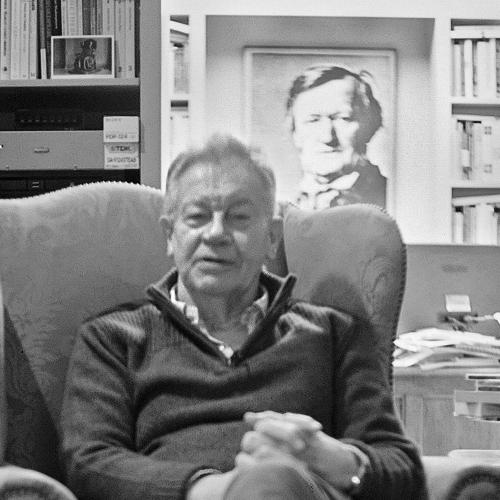COMPOSERS: Beethoven; Carter; Tchaikovsky
LABELS: DG
ALBUM TITLE: Daniel Barenboim: 70th Birthday Concert
WORKS: Beethoven: Piano Concerto No. 3; Carter: Dialogues; Tchaikovsky: Piano Concerto No. 1
PERFORMER: Daniel Barenboim (piano); Staatskapelle Berlin/Zubin Mehta
CATALOGUE NO: 0734990
It is characteristic of Daniel Barenboim to celebrate his 70th birthday by giving a concert, but surprising, perhaps, that we see him only as pianist and not as what he has now more prominently become, certainly after the BBC Proms Ring cycle: a conductor. He left that to his old friend and colleague Zubin Mehta, who on this occasion looks weary and conducts mainly without enthusiasm.
The first item, Beethoven’s Third Piano Concerto, is a mixed affair. Mehta conducts Barenboim’s orchestra, the Berlin Staatskapelle, in an all-too-brutal reading. Extra loud passages alternate with unidiomatically soft ones and there is notable lack of phrasing. Barenboim plays with all his old expertise and insight, but with little connection to the orchestra.
Then follows Elliott Carter’s Dialogues II, the only work, one can confidently say, written by a 103-year old; it is brief, gnomic, and confidently played. As the camera pans around the audience, one spots many musical celebrities, including Pierre Boulez, who even stays for the last item: Tchaikovsky’s First Piano Concerto. It’s an odd choice, not repertoire associated with Barenboim, but maybe he wanted to show that however much he is involved in conducting, orchestra-founding and peace-making, he doesn’t neglect to practise.
Despite a lethargic start, the Tchaikovsky is by far the most gripping piece in the programme, with plenty of thundering double octaves, grand gestures and exquisitely phrased dialogues with the orchestra in the quiet passages. There is naturally an immense protracted reception for this uniquely gifted and unpredictable artist.
Michael Tanner
